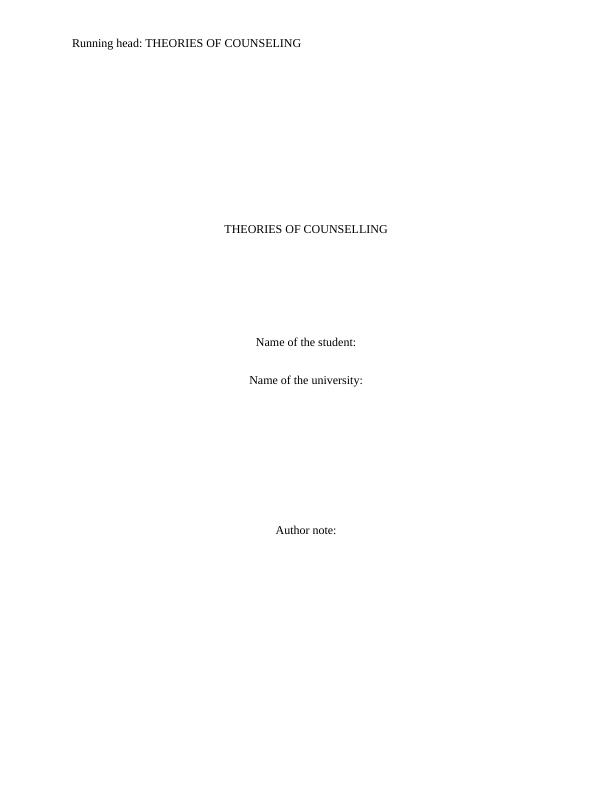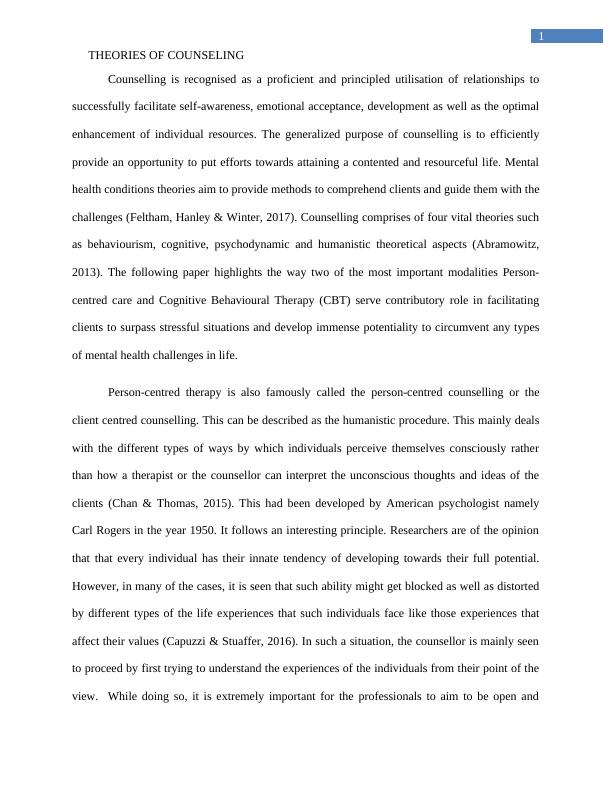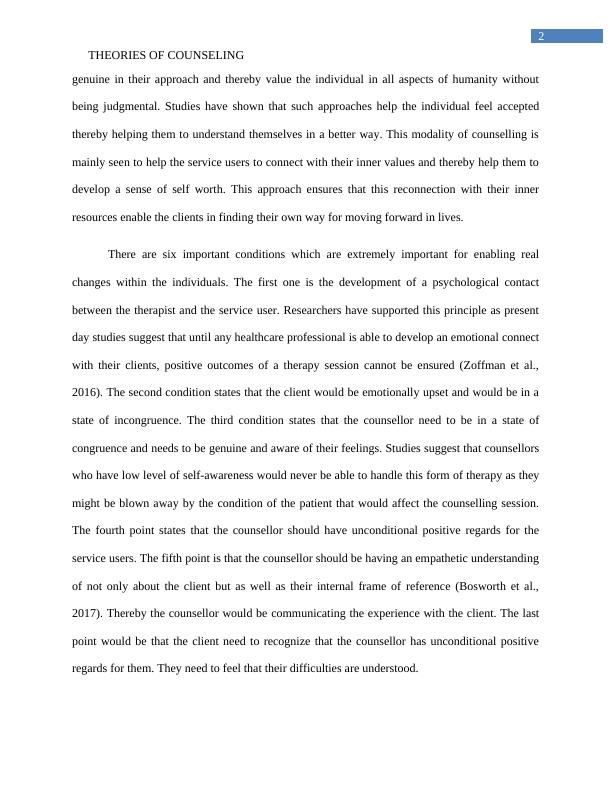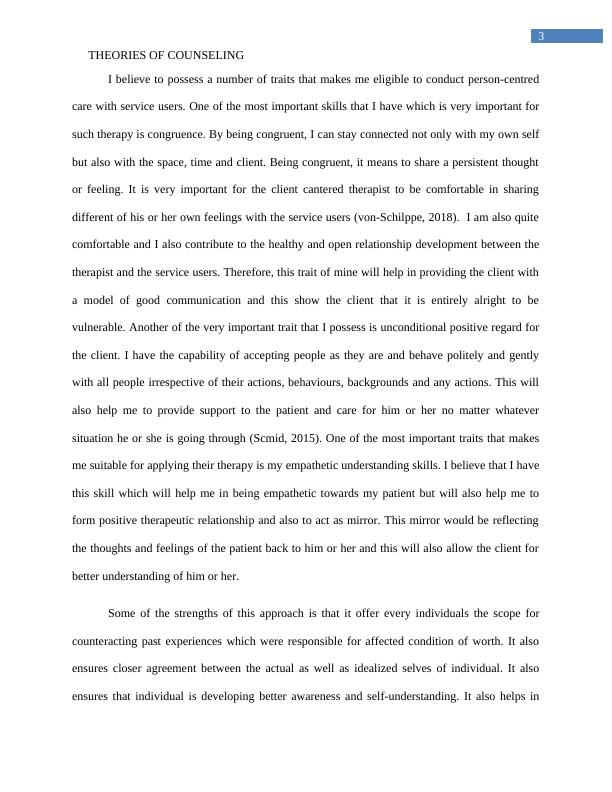Theories of Counseling: Person-Centered Care and Cognitive Behavioral Therapy
Students are required to identify and critically evaluate therapeutic modalities.
12 Pages3228 Words184 Views
Added on 2023-06-09
About This Document
This paper highlights the way two of the most important modalities Person-centered care and Cognitive Behavioural Therapy (CBT) serve contributory role in facilitating clients to surpass stressful situations and develop immense potentiality to circumvent any types of mental health challenges in life.
Theories of Counseling: Person-Centered Care and Cognitive Behavioral Therapy
Students are required to identify and critically evaluate therapeutic modalities.
Added on 2023-06-09
ShareRelated Documents
End of preview
Want to access all the pages? Upload your documents or become a member.
Contemporary Humanistic Counselling Theory
|7
|1923
|476
Comparison of Person Centred, Transactional and Existential Therapies in Counselling
|7
|2016
|380
Theories of Counseling: Cognitive Behavioral Therapy and Gestalt Therapy
|10
|3133
|485
Practical Ways for Mental Health Professionals to Use Existential and Person-Centered Therapy for Client Wellness
|1
|1295
|235
Person Centred Approach and Cognitive Behavioural Therapy
|7
|1752
|1
A Humanistic Approach to Counselling Case Study of Mental Health
|8
|2254
|436




